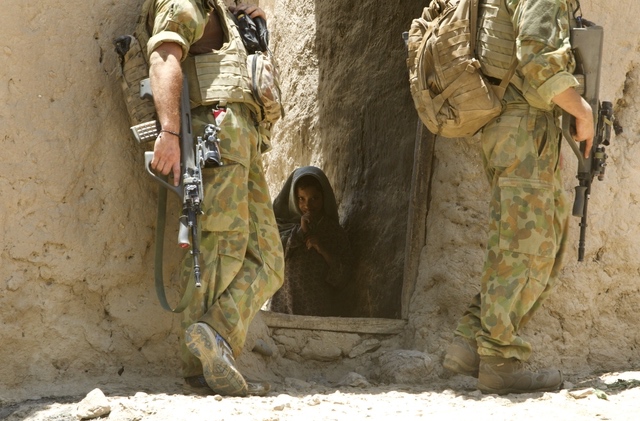
Australia’s Brereton Report Shows Route to Accountability for War Crimes
The Brereton Report, a four-year inquiry into alleged war crimes by Australian special forces in Afghanistan, has found credible information related to the unlawful killing of 39 unarmed civilians or prisoners and the mistreatment of two unarmed individuals.
According to the report, the unlawful killings were committed “by or at the direction of members of the Special Operations Task Group in circumstances which, if accepted by a jury, would be the war crime of murder.” And there were two further incidents in which a non-combatant or prisoner “was mistreated in circumstances which, if so accepted, would be the war crime of cruel treatment.” “None of these are incidents of disputable decisions made were under pressure in the heat of battle,” states the report.
The report, which looked at the period 2017-2016, also finds 25 current or former Australian Defence Force personnel who were perpetrators, either as principals or accessories.
The Australian government has announced the setting up of an Office of the Special Investigator to help the federal police investigate the allegations. By doing so, Australia appears to be responding appropriately to its international law commitments to investigate offences that may have been committed by their troops in overseas operations, and to launch prosecutions where necessary.
The approach of the Australian government can be compared with that of its UK counterpart, which is in the midst of passing through Parliament the Overseas Operations Bill, which would make it almost impossible to prosecute soldiers for alleged war crimes committed abroad more than five years ago. The UK has already closed its own Iraq Historic Allegations Team in 2017, and another investigation into unlawful killings by British troops in Afghanistan (Operation Northmoor) in 2020.
Criticism of the UK investigations has been well-documented. The Office of the Prosecutor (OTP) at the International Criminal Court has concluded that there was a “reasonable basis to believe that … the UK servicemen committed the following war crimes against at least 61 victims in their custody… : willful killing/murder…; torture and inhuman/cruel treatment…; outrages upon personal dignity…; rape and other forms of sexual violence…” (see Report on Preliminary Examination Activities 2018, para.195).The OTP “has documented at least seven deaths as a result of abuse in custody and 24 separate instances of detainees’ mistreatment involving 54 victims in total” which it considers as “illustrative” of the alleged conduct (see Report on Preliminary Examination Activities 2018, para. 196).
The Australian willingness to learn from the mistakes of the past, is in distinct contrast to the UK efforts which have recently focused on bringing forward legislation which would obstruct victims’ efforts to seek much needed justice and reparations for the harm suffered.
Listen to our podcast on the Overseas Operations Bill
Notes to editors:
On 30 October, REDRESS and over 20 other Afghan, Australian and international human rights and legal organisations wrote to the Assistant Inspector-General of the Australian Defence Force, Major General Justice Paul Brereton, urging him to commit to releasing the report of the Inquiry into allegations of breaches of international humanitarian law by Australian special forces in Afghanistan.
